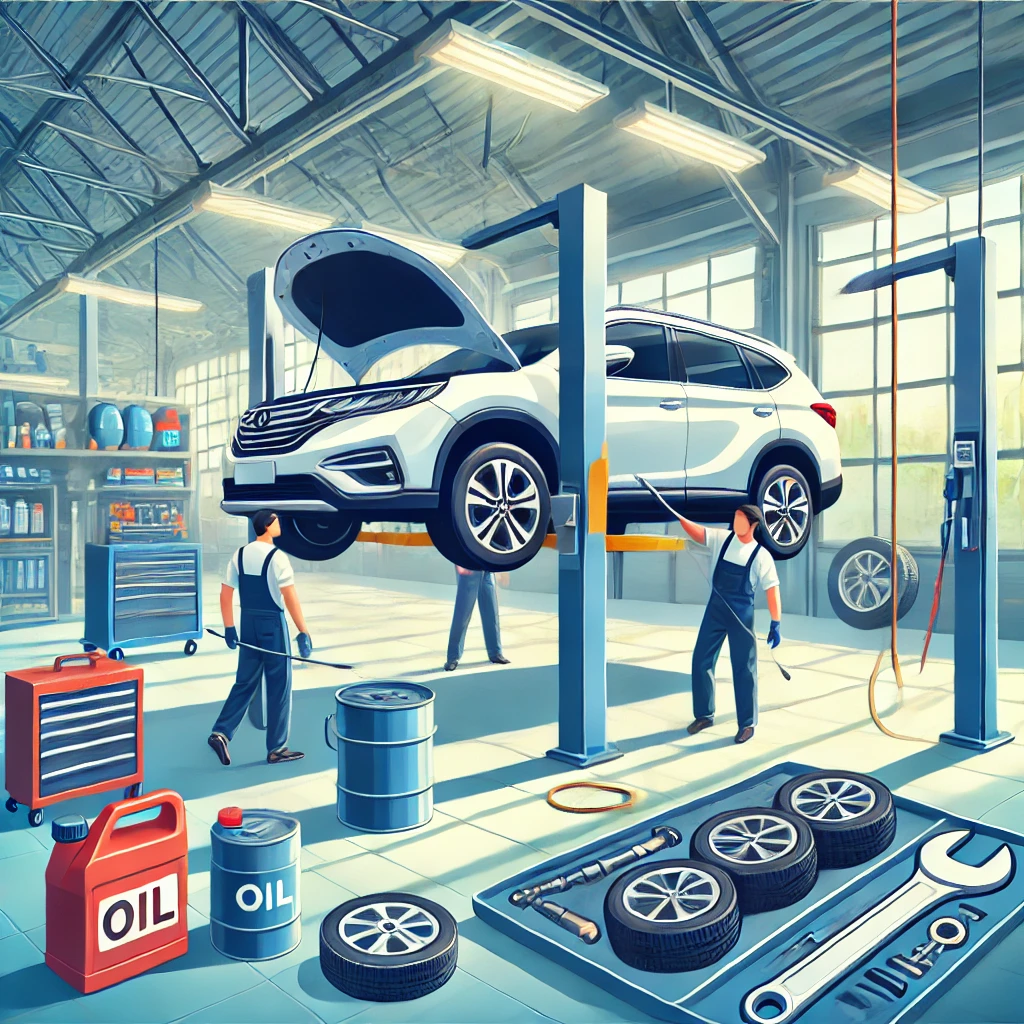
Owning a vehicle is a significant investment, and one of the best ways to protect that investment is through regular maintenance and essential car services. Not only do these services ensure that your car operates safely, but they also help extend its lifespan and improve performance. Whether you’re a new driver or an experienced one, understanding the necessary services that keep your vehicle in top condition is crucial to preventing costly repairs down the road.
In this comprehensive guide, we’ll walk through the key car services that every driver should be aware of, the benefits they provide, and how to stay on top of your car’s maintenance schedule.
Oil Changes: The Lifeblood of Your Engine
One of the most common and critical services for any vehicle is the oil change. Motor oil lubricates your engine’s moving parts, reducing friction and heat. Over time, oil degrades and accumulates dirt and debris, which can cause wear on the engine. Failing to change your oil regularly can lead to engine failure, which is both expensive and inconvenient.
The frequency of oil changes depends on your vehicle’s make, model, and type of oil you use. Conventional oil typically needs to be changed every 3,000 to 5,000 miles, while synthetic oil can last between 7,500 and 10,000 miles. Always consult your owner’s manual for the manufacturer’s recommendation, and never skip an oil change—it’s a small service that makes a big impact on your engine’s longevity.
Tire Care and Maintenance
Your tires are the only part of the car that touches the road, making their maintenance vital for safety and performance. Regular tire care ensures optimal traction, fuel efficiency, and ride comfort. Proper tire maintenance includes:
- Tire Rotation: This service involves moving your tires from one position to another (front to back, side to side) to promote even tread wear. Most manufacturers recommend rotating your tires every 5,000 to 7,000 miles.
- Balancing: Tires can become unbalanced over time, leading to uneven wear and vibration. Tire balancing involves adjusting the weight distribution to ensure a smooth ride.
- Alignment: Misaligned wheels cause tires to wear unevenly and can affect your vehicle’s handling. If your car pulls to one side, or if the steering wheel vibrates, it might be time for an alignment check.
Neglecting tire care can not only shorten the life of your tires but also increase your risk of a blowout, especially at high speeds.
Brake System Maintenance
When it comes to safety, your vehicle’s brake system is arguably the most important. Regular brake inspections and maintenance prevent serious issues such as brake failure. Your brakes should be checked annually, but if you hear squealing, grinding, or notice a soft brake pedal, have them inspected immediately.
Key components of brake maintenance include:
- Brake Pad Replacement: Pads wear down over time, and replacing them before they are completely gone is crucial to avoid damaging the rotors.
- Brake Fluid Change: Brake fluid absorbs moisture and loses effectiveness over time, so it’s important to flush the brake system periodically.
- Brake Line Inspection: Ensure there are no leaks or damage to your brake lines, which can lead to brake failure.
By staying on top of brake maintenance, you’ll ensure your car stops reliably when you need it most.
Battery Check and Replacement
A dead battery can leave you stranded and frustrated. Most car batteries last between three to five years, but extreme weather, heavy usage, and frequent short trips can shorten their lifespan. To avoid unexpected battery failure, have it checked regularly, especially before the winter months when cold temperatures can reduce battery performance.
During a battery check, mechanics will test the battery’s charge and look for signs of corrosion or damage. If your battery is nearing the end of its life, replacing it before it dies will save you from potential headaches.
Fluid Level Checks and Top-Offs
Your vehicle relies on several essential fluids to run smoothly, and keeping them at the proper levels is crucial for performance and longevity. These fluids include:
- Engine Oil: As mentioned earlier, oil lubricates your engine and must be maintained.
- Transmission Fluid: This fluid keeps your transmission operating smoothly. If it’s low or dirty, you could experience shifting problems or even transmission failure.
- Coolant: The coolant (or antifreeze) helps regulate your engine’s temperature, preventing it from overheating. A lack of coolant can result in significant engine damage.
- Brake Fluid: Low brake fluid can lead to a spongy brake pedal and decreased braking performance.
- Power Steering Fluid: This fluid allows you to steer with ease, and low levels can make turning the wheel difficult.
It’s a good habit to check these fluids regularly and top them off as needed. Your mechanic will likely check these levels during routine services, but knowing how to do it yourself can prevent issues from arising between visits.
Transmission Service and Maintenance
Your car’s transmission is one of its most complex and essential components. Whether you drive an automatic or manual, the transmission is responsible for transferring power from the engine to the wheels. Regular maintenance, such as fluid changes and system checks, helps ensure that your transmission runs smoothly for years to come.
Signs that your transmission might need attention include slipping gears, delayed shifting, or strange noises while driving. Transmission repairs are notoriously expensive, so staying ahead of issues with routine maintenance can save you a significant amount of money.
This guide continues with detailed insights into essential services like air filter replacements, steering and suspension inspections, and seasonal maintenance tips to ensure that your car remains in optimal condition year-round. Additionally, we’ll cover tips for finding a reliable mechanic and answer common questions drivers have about vehicle maintenance. By understanding these services and integrating them into your car care routine, you can prolong your vehicle’s life and drive with confidence.